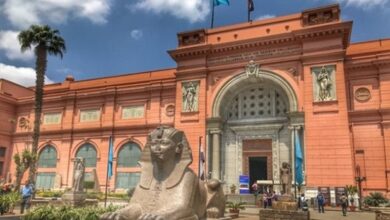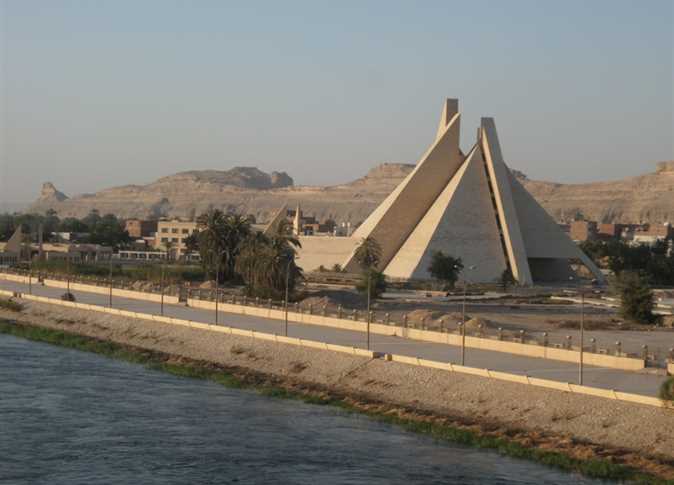Since 11 February when Mubarak stepped down, the Supreme Council of the Armed Forces, which has assumed leadership of Egypt's affairs until such time as free elections are held, has repeatedly and thus far unsuccessfully called on Egyptians to "return to work." It has even threatened to take action against striking workers in the name of national security. The civilian middle-class revolutionaries also seem to be insisting that the striking workers "return to work." Even Sheikh Yusuf al-Qaradawi, in his 18 February Tahrir khutba before hundreds of thousands of Egyptians, urged striking workers to go home, stating that it is impossible for all demands to be met immediately and counseling them to be patient.
Meanwhile, the Egyptian Independent Trade Unionists have published their demands. Some of these demands relate to raising the minimum wage and prohibiting differences in wages in excess of 15 times between senior managers and workers. Another demand is greater job security and prohibition of the use of temporary workers. While some demands may be unreasonable to the extent they tend to decrease flexibility in the Egyptian labor market and would thus make the Egyptian economy even less competitive than it is now, others are eminently reasonable, indeed necessary, and ought to be recognized immediately. These include the following: 1) The right to organize independent labor unions; 2) The removal of corrupt managers; 3) The right to strike; and, 4) The dissolution of the Egyptian Trade Union Federation.
These demands are necessary components of any future reform package that hopes to improve the efficiency of the Egyptian economy. A strong labor movement with the power of independent collective bargaining can reduce the incidence of corrupt, self-serving management, as well as aid in a more just distribution of national income, two goals that the Mubarak regime utterly failed to achieve. And, given the deep penetration of the Mubarak political machine into the economy, dismissal of corrupt managers would seem to be a revolutionary imperative.
More generally, however, the Trade Unionists' declaration that the fair distribution of wealth, along with the establishment of formal democratic rights, must be one of this revolution's priorities, cannot reasonably be denied if this revolution is to succeed. For that reason, Egypt should adopt a social democratic model, along the lines of the so-called Nordic model. The Scandinavian countries all enjoy highly efficient economies, but yet are characterized by relatively low levels of inequality, strong social services, strong labor unions, and a strong social safety net that substantially eases the cost of (temporary) labor unemployment. Establishment of a social democracy in Egypt, however, will require the upper and professional classes to make economic sacrifices on a scale that they perhaps did not contemplate when they embarked on this revolution, demanding only greater democratic freedoms.
Yet, they should understand that without these sacrifices, any democratic experiment in Egypt will be tenuous at best, or lapse quickly into a police state at worst. The risk of a return to the Mubarak-era police state is palpable in light of Egypt's recent experience under Mubarak: in order to control a growing population of poor and a labor force that was losing its ability to earn a decent living, the government dramatically expanded its police forces to the point that the police force swelled to approximately 1.5 million.
Since the Mubarak regime embarked in the early 1990s on the IMF and World Bank sponsored structural adjustment programs, Egypt has become more unequal; its police forces have swelled; and its commitment to public education as a proportion of the national budget and Egypt's GDP decreased substantially: public spending on education declined from 16 percent of the national budget in 2005 to 11.9 percent in 2008; and educational spending as a proportion of Egypt's GDP declined from 4.8 percent to 3.8 percent over the same period.
Yet, during the last 20-odd years, the economy grew substantially. From this perspective Mubarak's Egypt confirms the wisdom of the 2002 UN Arab Human Development Report's refusal to consider solely macroeconomic indicators such as rising national income to measure development. That report documented the disturbing long-term trend in the Arab world of declining relative investment in education, from 20 percent of that spent by industrialized countries per capita in 1980 to ten percent in the mid-1990s. The 2002 Report also warned against the rise of a bifurcated education system: an expensive system of private education accessible only to the relatively well-off, and a poorly funded public educational system incapable of assisting the less well-off achieve social and economic advancement. Only a commitment to social democracy can reverse these destructive trends.
These figures confirm that the lion's shares of growth in Egypt over the last two decades redounded to the benefit, almost exclusively, of the relatively well-off. But this is not simply a story of transferring wealth from the have-nots to the haves: it is also a story of a state that was unwilling to invest in improving the capacities of its own people. The Mubarak regime effectively purchased temporary macroeconomic stability at the price of future growth by failing to make the necessary social investments in Egypt's people that would assure continued stable growth.
That bill is now due. The upper quartile of Egypt's society by wealth and income must understand that if they truly want a stable democratic regime, with competitive elections and peaceful transition of power among civilians, then they must share more of the economic pie with the rest of Egyptian society. This can take place along two axes: the first is the reduction in subsidies that benefit largely the well off. The gasoline subsidy is one such example. So is free tuition to all public university students without regard to their wealth. Reducing subsidies to the well-off will free up valuable resources to support the poor and the working classes, who are eminently more worthy of state support than families sufficiently well-off to buy imported cars, or even own several apartments.
Likewise, the well-off will need to accept substantially higher taxes. A wealth tax may be easier to implement in the current circumstances than a rise in income tax rates, if only because it avoids the difficulty of documenting taxpayers' earnings, especially if much of that income is generated from real property rather than documented salaries or interest, dividends or capital gains from stock, bonds and certificates of deposit. The government could impose a progressive-style property tax, for example, which would take into account whether the property is the taxpayer's primary residence, its location, and its size, i.e., number of bed rooms; whether the property is the tax payer's first or second home (or even third, etc.); whether the property is occupied or unoccupied. A punitive tax on unoccupied housing as a means to encourage absentee landlords to rent their properties should be considered, in order to increase the supply of rental units in the housing market and thereby make housing more affordable. At the same time, rent-controls should be gradually lifted in at least more well-to-do neighborhoods to allow appreciations in the values of those properties which in turn could also increase the tax base. A wealth tax could also be levied upon bank accounts, certificates of deposits, bonds and publicly-traded shares, without necessarily causing wealthier Egyptians to shun such investments.
While tax experts might have better suggestions, it is clear that Egypt will not be able to solve its economic problems without responding to the ongoing immiseration of Egypt's working classes and poor. And it will not be able to respond to those problems without risking runaway inflation unless the state's tax base and tax revenues substantially increase. This can only be accomplished if the relatively well-off agree to pay more in taxes.
If Egypt can implement the Nordic model of capitalism, its economic future will be much brighter than if it persists in its current anti-labor, anti-social policies: direct foreign investment would likely increase with evidence of a genuine political commitment to address the structural sources of instability in Egypt; namely, authoritarian rule and gross economic inequality. The resumption of social investments in Egypt's people will also increase Egyptian labor's productivity, thus increasing Egypt's attractiveness as a destination for labor-intensive investments .
Policies such as those described above would also reinforce Egypt's nascent democratic institutions because it would succeed in broadening the base of the citizenry who have a stake in the preservation of parliamentary democracy. With 40 percent of the population living on $2/day or less, it is not too difficult to imagine scenarios of vote-buying or worse. After all, don't the Mubarak thugs, the baltagiyya, come from the poorer classes who are eager to find any kind of work, even if it means acting to repress the rights of their fellow citizens? Accordingly, without a solution to the structural inequality of Egyptian society, there is good reason to fear that any democratic gains from this revolution will be quickly lost. The best way to guarantee that these gains are preserved is for the well-off to commit that they are prepared to make economic sacrifices in the form of social policies that will allow the great mass of Egyptians to share in future prosperity.
There is some evidence that the Supreme Council of the Armed Forces has begun to realize that Egyptian labor has legitimate demands and that the transition to a new government cannot proceed without incorporating labor's views. The Egyptian daily al-Ahram reported a couple of weeks ago that the Council has finally agreed to meet with the leaders of the Egyptian Independent Trade Unionists. This is a crucial first step in giving Egyptian labor the recognition that is its due, but until meaningful commitments are made to protect workers' interests, don't hold your breath waiting for labor to get back to work. Nor should they.
Mohammad Fadel is the Canada Research Chair for the Law and Economics of Islamic Law and Assistant Professor at the University of Toronto Faculty of Law. This article originally appeared in Foreign Policy.




